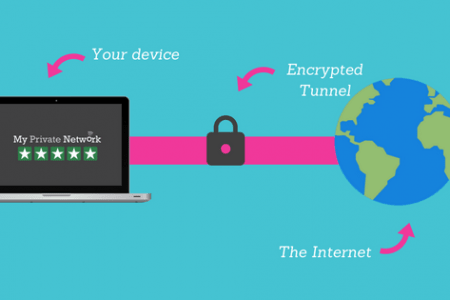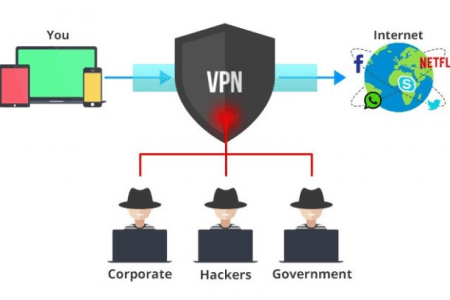Best VPNs for Linux 2019
| Service | Advantages | Our Score | Price | Links |

|
|
$11.95 $2.99 per month -75% |
Visit Site NordVPN Review | |

|
|
$13.99 $7.99 per month - 43% |
Visit Site Hide My Ass Review | |

|
|
$12.95 $6.67 per month - 48% |
Visit Site ExpressVPN Review | |

|
|
$8.54 $5.49 per month -36% |
Visit Site AirVPN Review | |

|
|
$10.00 $5.83 per month - 42% |
Visit Site StrongVPN Review | |

|
|
$11.99 $6.49 per month - 46% |
Visit Site IPVanish Review | |

|
|
$9.99 $4.99 per month -50% |
Visit Site TunnelBear Review |
- Military Grade Encryption
- 5100+ Superfast Servers
- Ultra Secure, Zero Logs
- Easiest VPN on the Market
- VPN with a free trial
- 880 + Servers in 279+ Countries
- Save up to 43% on 1 year subscription
- Easy to use
- Fastest VPN on the Market
- 1,500+ servers in 94 Countries
- Ultra Secure, No Logs
- Save up to 48% on a 1 year subscription
- To 5 connections at the same time
- Easy to use
- Save 42% on a 1 year subscription
- 5 Simultaneous Connections
- 1010+ Servers in 90 countries
- Email support is great
- Save up to 46% on a 1 year subscription
Most popular categories:
Everything You Need to Know About VPN for Linux
When using Linux as your operating system (OS), you need a VPN which can satisfactorily protect your internet connection and offer you speed as well as privacy. As a user that cares about security and the independent use of the web, you should learn all the nitty-gritties of VPN for Linux. Read on.
Why Do I Need a VPN for Linux?
Since September 1991, Linux has given Intel x86 PCs and Android smartphones the needed operations to function. Apart from the fact that it Linux now works on other devices, it remains one of the trusted operating systems for security-conscious PC users. Now, using a Linux OS requires that you boost your level of security. And with the best VPN for Linux, you can enjoy the privacy that Microsoft and MacOS users lack. Linux operates an open source OS which allows it to detect any form of tampering. What more benefits do you get when you use a VPN for Linux?
· Linux VPN for Privacy
As an open source operating system, Linux offers the most privacy. What’s more? When you access the internet using a VPN with your Linux, nobody can view your internet activities. In fact, your ISP cannot get any clues about what you do on the web. Such double security gives you the liberty to use the internet confidently for downloading, streaming, surfing, and even making purchase. In addition, using a VPN with your Linux-based PC will enable you to block your identity and remain anonymous, since websites can’t locate your actual IP address.
· Unblock Geo-Restricted Content
Some websites restrict the access of visitors from specific countries or with certain IP addresses. Now, when you use a VPN for Linux, your VPN provider gives you access to a variety of servers which can unblock Netflix, BBC iPlayer, CNN, FOX, and other sporting stations which are normally restricted. The best part of this is that a VPN makes the websites believe that you’re actually in the U.S. or within the region that ideally should have access to their programs. Such superb offerings only become real when you install the right VPN on your Linux PC.
· Sidestep Censorship
An added benefit of using a VPN for Linux is being able to sidestep censorship. Since the commercial private network can allow you to be online without being seen by the NSA or the government, you can go beyond their restrictions and view whatever content that appeals to you on the web. Who says you can’t have the same access that citizens of such countries enjoy.
· Protection from Hackers
Hackers are often on the lookout for internet users who connect to the internet without securing data. And public Wi-Fis are their target. But you can outsmart them by using a VPN for Linux with the guarantee that your data is encrypted by your VPN provider.
· Location Spoofing
Since it became difficult and almost impossible to use the internet without being spied on, the need to spoof location has risen. Thousands of VPN servers often cut across hundreds of countries, and you can employ them to spoof a specific location. Also, be sure that the VPN you choose for your Linux supports spoofing that location so that your subscription doesn’t become useless.
· Faster Browsing
Very few internet service providers have internet speed performance that makes downloading and streaming effortless. Most of the VPNs which work with Linux guarantee unlimited bandwidth which leaves no room for buffering hitches.
· Torrenting Support
Peer-to-peer (P2P) sharing becomes easier when you use a torrent, as no one can see your actual IP address. In such case, they only see the IP address which your VPN displays.
· Gaming Ease
Even though Linux OS has limited games, using a VPN will allow you to view and play Windows games. Nonetheless, you can still get Linux games on Steam.
How to Choose the Best VPN for Linux & for What Purpose
There’s no gainsaying that a wide range of VPNs promise to give you speed, privacy, and security. When you surf the web, you’ll find a lot of reviews recommending different VPN software. However, while it’s not our place to name any VPN as unreliable, we boldly state that you should be wary of free VPNs for Linux. Such VPNs may log your data and sell it to third-party companies when the need arises. Additionally, free VPN providers who use only PPTP connection and don’t have DNS servers run the risk of being insecure. Thus, below are factors you should consider before you choose a VPN for Linux:
- Dedicated Linux App – VPN providers with actual support for Linux make it easy for Linux users to configure the settings and use the VPN easily. When a VPN has an already-built app, it produces an added level of convenience for users. Users of Ubuntu and Fedora can enjoy the native apps on some top VPNs.
- Speed Performance – VPNs with faster speed often rank higher than those with normal internet speed. And this should guide your choice if you’d be streaming, watching live events or downloading videos on the web.
- Available Servers – There’s no denying the fact that it’s vital to choose a VPN for Linux with up to 3,000 servers in several countries, as this would provide easy access to anything at any time.
- Privacy Policy – Another fundamental criterion of choosing the best VPN for Linux is the logging policy. A VPN which logs users’ history, activities, and locations is unreliable and can provide these details to security agents or the government of their country. Even if you have nothing on you, you need a VPN for Linux that you can trust to keep your online activities anonymous, secure, and untraceable.
- Encryption Strength – No hacker can crack the 256-bit AES encryption because it is airtight and only produces unintelligible text which typically seems to make no sense. The best VPNs use this encryption to ensure that user input and output data cannot be viewed by outsiders.
- Trial Version – Selecting a VPN with a trial version will allow you try the VPN connection on your device before subscribing for a plan. Most good VPN providers give a trial period of 3-5 days. Beware of VPNs that give you only 5 minutes or thereabout to assess the features of their VPN. You’ll find this with free VPNs especially.
- Money-back Guarantee – Money-back guarantee ranges from 3-7 days. This allows you to decide if you’re sticking with the VPN service or you’d rather choose a better one. Any VPN with no money-back guarantee only cares about your money and cares little if their VPN connection works fine with your devices.
- Subscription Discount – Discount on VPNs makes it possible for you to subscribe to a full 12-month plan instead of simply settling for a monthly package. Ensure that you compare VPN packages for monthly, yearly, and lifetime subscriptions. Many times, lifetime subscriptions give you ultimate security and added benefits.
Find a Linux VPN Easily
With the above criteria, you can easily find a VPN that’ll work perfectly with your Linux OS. First of all, always remember that your focus should be on a VPN with a good reputation and clearly-defined offerings. Next, consider if their offerings fit your VPN needs and budget. On finding the best VPN for Linux, check for the following features as well:
- DNS Leak protection – this unblocks contents restricted to specific regions
- Good customer support – you need a responsive 24/7 VPN provider that addresses your concerns in a friendly manner
- Security protocols with modern infrastructure
- Easy navigation – you should get a VPN that doesn’t make configuration a time-consuming task
- Multiple simultaneous connections – check for VPNs that allow you to connect to different servers at the same time using different connected devices with Linux OS.
Choosing a Linux VPN Based on Linux Distros
Linux Distros refer to the different versions of Linux OS. Never forget to choose the best VPN for:
- Linux Ubuntu
- Linux Mint
- Linux Tails
- Linux Qubes
- Linux Kali, and more.
Before you conclude on the VPN for Linux, check what Linux distros you use and be sure VPN provider supports that version.
Custom Linux VPN Clients
It’s common for VPN providers to include manual setup settings for users who subscribe to their services. Nonetheless, some top VPNs reduce the stress of importing configuration files by creating custom Linux VPN clients. Linux clients often come with added features which MasOS and Windows users enjoy. But very few VPNs provide this for Linux OS.
Kill Switches for Linux
VPN connections occasionally get disconnected, and at such times, you may question the security of your data and internet connection. VPNs without kill switches bring about IP leak which could quench the thirst of hackers or leave openings for malware and other malicious attacks. When the VPN gets disconnected, your computer shouldn’t stay connected to the internet. If it does, then your real IP address will get out there. And this can be very unpleasant as it defeats the original purpose of the VPN. What many reputable VPN providers do is that they create the kill switch solution. This solution protects you even when your connection deactivates. Generally, we have the firewall-based kill switches and those built into the custom VPN client. However, custom Linux VPN clients lack kill switches, and only the best VPNs for Linux take care of this. To protect yourself nonetheless, you can enable iptables firewall as substitutes.
VPN Protocols You Should Know Before Choosing a Linux VPN
To secure the connection between two computers, you need a VPN protocol, and the most common ones include:
- OpenVPN – While many believe that OpenVPN network is an actual VPN, it isn’t. Instead, it’s a secure and open source protocol which connects with a server to encrypt your computer data with the access on your chosen VPN.
- PPTP – Although this protocol has existed for a long time, many privacy experts discourage it, as it provides little or no actual security. But, of course, Linux supports it. Yet, we advise that you don’t pick a VPN that provides only the PPTP protocol.
- L2TP – This is another protocol that can be trusted to a small degree because the NSA can intercept it. Regardless, it can serve your purpose if you use hidden pre-shared keys.
How to Install a VPN on Linux
The steps below will guide you as you install a VPN on Linux:
- Use Ubuntu NetworkManager
- Download the Ubuntu OpenVPN packages using sudo apt-get install network-manager-openvpn
- Enter sudo restart network-manager in the command prompt to restart the NetworkManager
- Download the OpenVPN configuration file(s) that comes from the VPN provider. To unzip the files, you must subscribe to the VPN
- Click NetworkManager
- Click VPN Connections
- Click “Configure VPN”
- Click “Add”
- Choose “OpenVPN”
- Click “Create”
- Enter the VPN server address in the VPN tab
- Add your account details (such as username and password) under “Authentication”
- Next, click “CA Certificate” and check through the list in the ca.crt area
- Then click “Advanced”
- If your VPN requires it, check “Use LZO data compression.”
How to Use a VPN with Linux
Now that you’ve learned how to download and install OpenVPN to support the use of a VPN on your Linux OS, you can use your VPN by doing the following:
- Go to NetworkManager
- Open VPN Connections
- Choose your connection (OpenVPN).
Note that you can configure another VPN by following the same installation process above. Take note of the padlock icon that signals that your connection is on. Remember to set up iptables to play the role of the kill switch and reduce your risks of IP leak.
Conlusion
If you carefully read through every single section in this post, you’d have learned everything that relates to using a VPN for Linux OS. Remember the basics and confirm that the factors which relate to the best VPNs are available on that VPN connection. Likewise, pick a VPN with a dedicated Linux app and other fantastic features that can make using the internet worthwhile. In all, when you make your choice of VPN, be excited that you’ll be getting the perks of super-fast speed, 100% anonymity, and impenetrable security.











